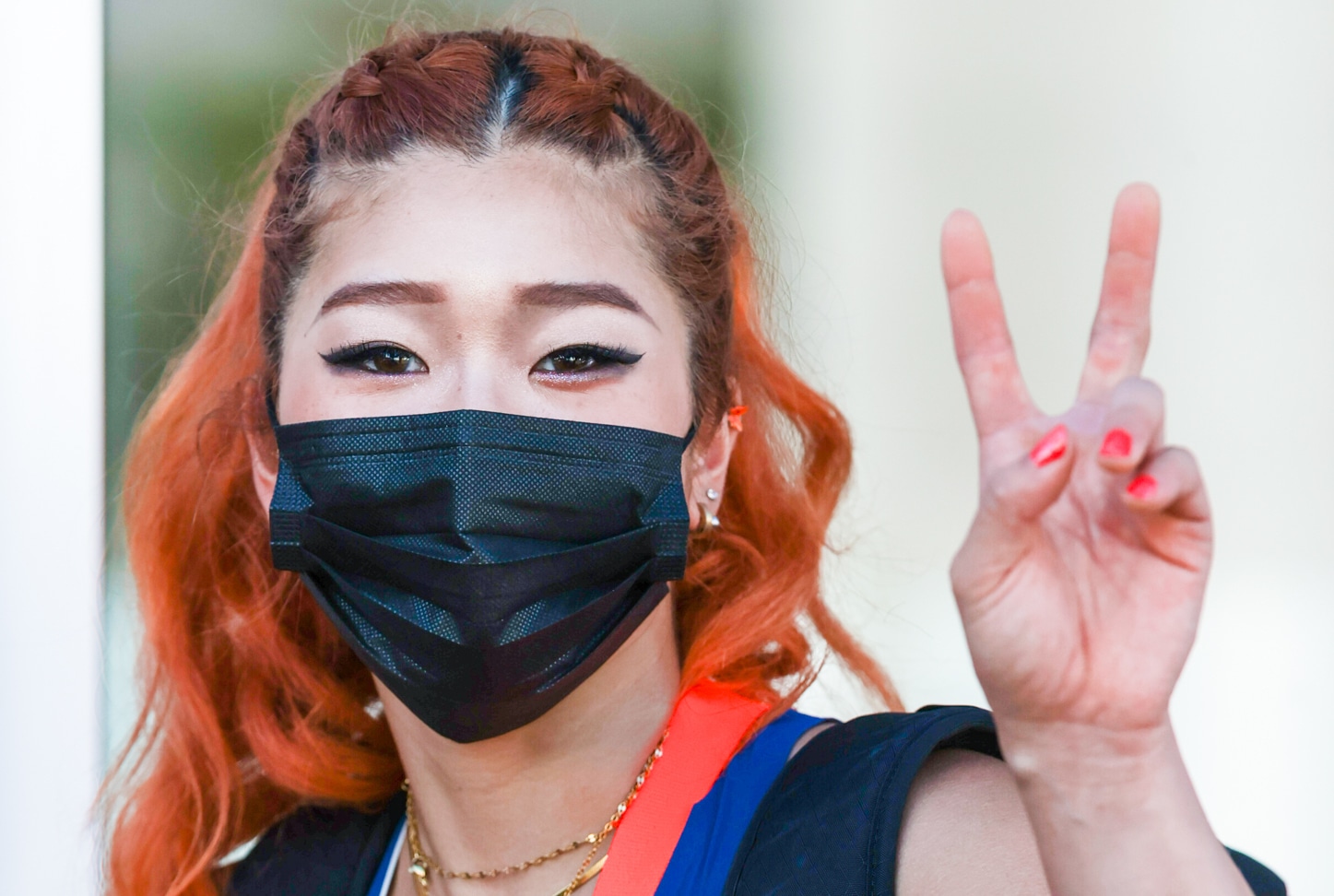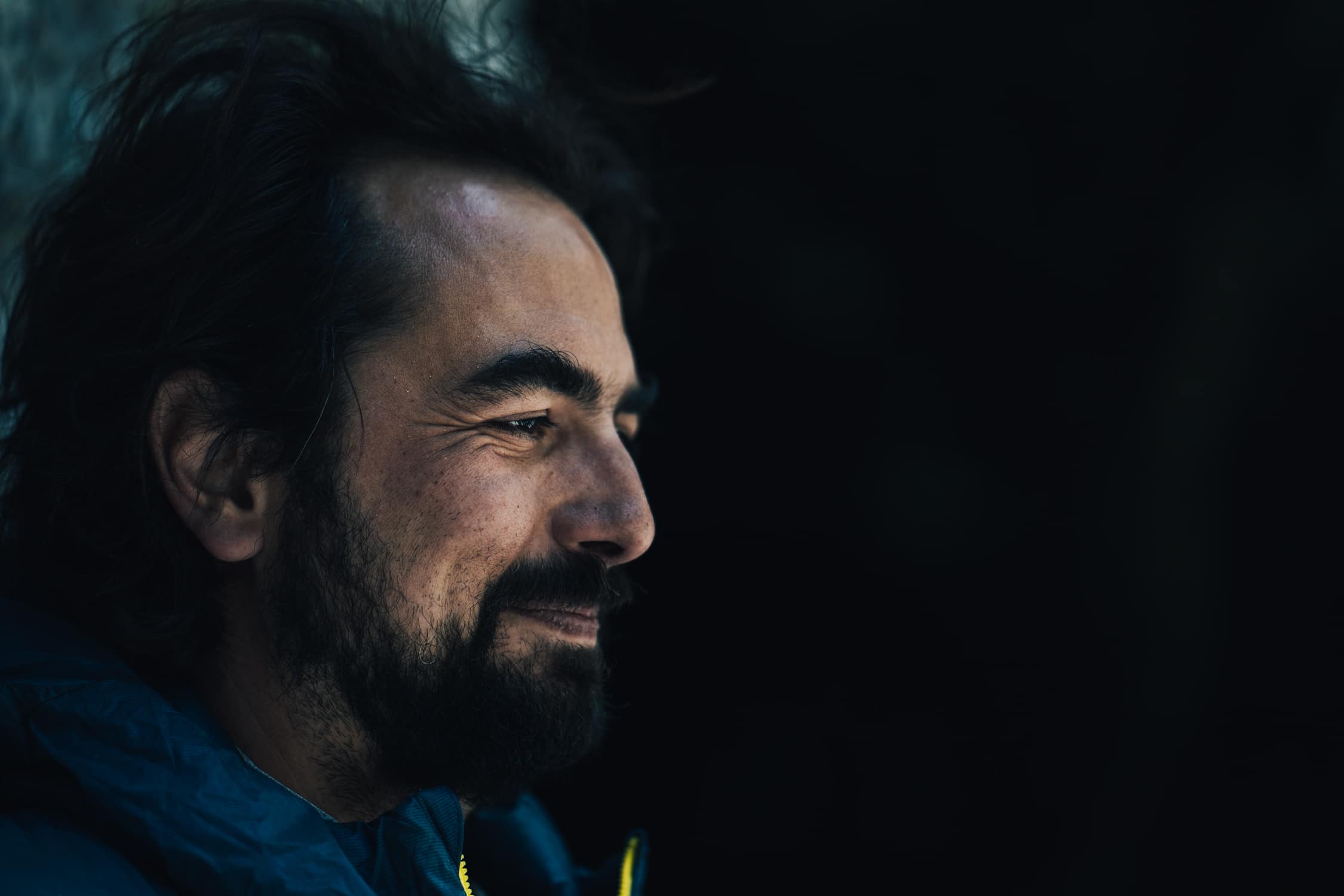A conclave of climbing’s top experts and oracles convened in Tokyo to begin the ordained business of determining climbing’s Olympic medalists. This process is known to the mystics as the “Combined Format.” The spandex-clad phalanx of high priests chose a 24-7 Konbini convenience store, known for its killer fish and cream sandwich rolls, to conduct their sacred deliberations. Over the course of the week, the conclave rigorously arbitrated the Combined Format to determine who will become climbing’s first Olympic medalists.
The process was free for anyone to watch so long as you could download the right app. Around the world, climbers waited earnestly for any sign from the Konbini market that the Combined Format had made its decision. After many days, a plume of purple smoke finally puffed out of the top of the Konbini. Finally, it was here! Sound the trumpets! Ring the bells! Our Olympians, our lovely Olympians, at long last were here!
The Konibini door opened and through the purple smoke, some random ass climbers emerged…
OK… I admit this is absurd and hyperbolic, but the confusing capriciousness of the Olympics combined format is an easy target for critique.
Of course, I thought the actual climbing performances were a joy to watch—with jaw-dropping displays of athleticism and creativity. But the format nevertheless flattened these performances into exactly the kind of arbitrary disaster that we all knew it would.
It’s worth pointing out that the worst-case scenario that most people feared—that a “speed specialist” would somehow win the gold medal—essentially happened, though not exactly in the way that we thought it would. That’s because Alberto Ginés Lopez isn’t a “speed specialist,” at all. But due to some very lucky events, he ended up winning the gold medal only because of the speed round. He also had relatively weak performances in the other two events. In fact, if you just ignore the speed event, Ginés Lopez would have come in last place.
This means that, for all intents and purposes, a speed specialist won the Olympics, even if Ginés Lopez is actually a very talented lead climber and solid boulderer. The very thing that climbers worried would happen as far back as 2015 ended up being the reality for the men’s finals event. All because of the combined format.
It’s also interesting to consider how much luck was required for Ginés Lopez to win the speed round with a time that was more than a full second slower than some of his fellow competitors’ best efforts. Bossa Mawem, the best speed climber at the Olympics, tore his biceps in qualifiers and ended up pulling out of the finals event. Tomoa Narasaki, who can also consistently put up sub-six-second times, false started. Colin Duffy false started. Mickael Mawem had a costly slip. You could run this event a dozen more times and never get these results again.
The combined format also led to the confusing predicament Adam Ondra faced in the finals, in which he would either win gold or come in sixth place—all based on a difference of just a few moves made by another climber that wasn’t him.
Capricious and confusing as it may have been, the men’s finals were objectively exciting. Route setters can’t ask for a better situation than the one we got to see this week, in which it literally all came down to the last performance of the night, and that performance was the first and only top of the route. That’s great entertainment right there.
I will take this any day over the women’s finals, which were far less exciting. There’s not too much to say about the event. It’s hard to argue that Janja Garnbret, Miho Nonaka, and Akiyo Noguchi don’t deserve their respective places on the podium. If anyone had to bet on the results, they’d probably pick these three, in this order. It’s just too bad there wasn’t any element of surprise. It was the complete opposite of the men’s event; almost a mere formality.
One interesting thing, though, is just how close Aleksandra Miroslaw, the speed climbing specialist from Poland who took first in that event, came to winning the bronze. She came in last place in both bouldering and lead, but if she had even gotten 7th place in one of those events, she would be wearing the bronze medal, not Akiyo Noguchi.
Noguchi, of course, deserves that medal—especially as this was the last competition of her long and successful career. Good for her for going out on a high note, and a little lucky not to have been denied that medal because of a speed climber.
So what’s next for climbing? Google Trends this week reported that sport climbing was the top search word of all the Olympic events this week. And the NBC announcer casually dropped a surprising stat during the broadcast—that 3,000 noobs are joining the sport every day.
For many, this sounds like the apocalypse, the end of the fringe and core lifestyle many hold sacred. My money is that ultimately not much will change, just as I predicted 5 years ago. One thing is for sure, however. No one will miss the combined format. Good riddance, combined format.
Now back to our regularly scheduled programming.
Photo by John Glassberg / Louder Than 11.




0 Comments